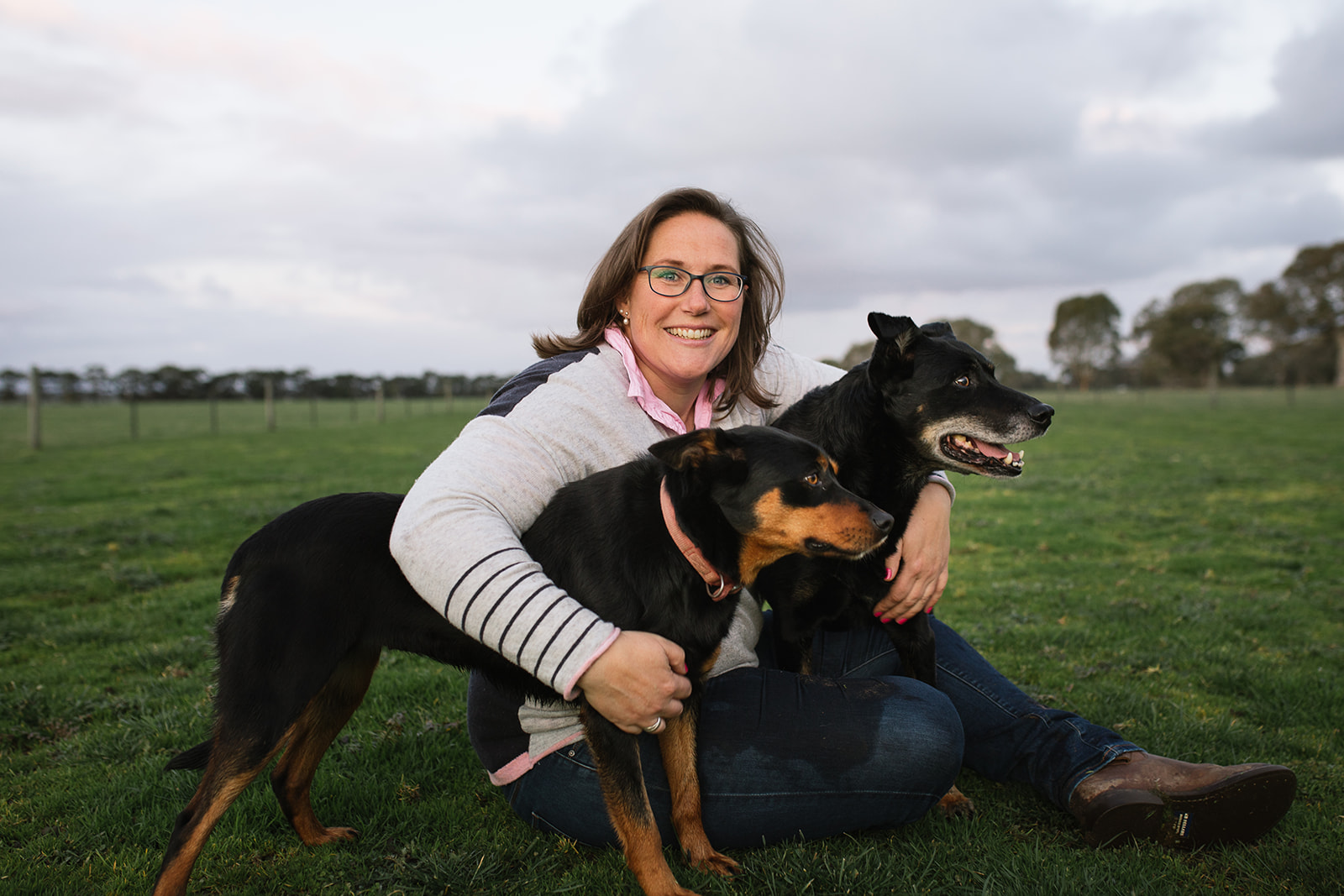September 2018 was a pivotal moment in Kelly Barnes life. Working casually for the National Centre for Farmer Health, her path crossed with suicide prevention researcher, Dr Alison Kennedy, who was running Digital Storytelling workshops in rural Victoria. Kelly joined in on a workshop, creating a short movie using photos and videos of her life focusing on her mental health struggles and her battle with chronic pain and fatigue.
“I have a chronic pain condition called Fibromyalgia. The easiest way to describe it is you have a hypersensitive nervous system, so you react to pain and external stimulus on a much larger scale,” she says. “I was looking through pictures of my life to put together my story, and realised they were mostly photos with my dogs. It just made me really think about how much I loved having dogs around; how I take them everywhere with me and they make me more confident and less anxious.”
Attending the workshop alongside Kelly was Alex Thomas, the winner of the 2018 Agrifutures’ South Australian Rural Women’s Award. The two stayed in contact, sparking the next step of a research project forming in Kelly’s mind.
“I’d been interested in how farmer information workshop type groups not only offer information, but also a social wellbeing aspect where they interact and get together,” Kelly says. “I was pondering how you could evaluate how these groups affect producer wellbeing. Looking at all my photos with dogs, I realised there could be something meaningful in researching working dogs and their relationship with farmers.”
The result has been Kelly’s concept, Mates Working Dog School – a working dog school to build low stress stock handling skills and to create a strong bond between dogs and their owners. Offering social connections and networks with like-minded producers, the project offers tangible skills and a day of interaction off the farm.
“It’s quite interesting because I deal with mostly male farmers every day, and they’ve all been really interested, so it’s been quite amazing,” she says. “I’d like to scale the project. I want to get some good data from this pilot program, then go to funding bodies and be able to roll the project out nationally. The idea is then to make it accessible to run multiple locations in regional Australia.”
Kelly hopes to roll the pilot program out by the end of the year, enlisting the help of dog trainer Ian O’Connell to run the six full-day sessions. “Ian has been running dog schools for 20 odd years, he’s amazing at it,” she says. “He’ll do the dog side and I will incorporate the social and emotional wellbeing side of things within those days, ensuring producers are interacting within the group activities. Each day there will be an aspect of building resilience, tying in with the dog.”
Kelly has adored dogs her entire life. Growing up on a mixed cropping farm in High Wycombe, south east England, she acquired her first working dog after she left university while working on a sheep property for a year. Travelling to New Zealand and then onto Australia in 2007, the then 24-year-old bought a kelpie, Dugald, who has been by her side ever since. “Working in shearing sheds and as a station hand, I really struggled without a working dog,” she says. “He’s pretty much been everywhere with me ever since and having him helped me get a lot more stock work.”









